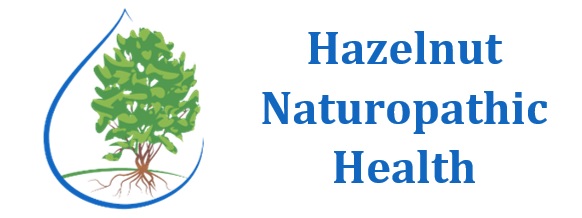
Natural Remedies for Seasonal Allergies
Natural Remedies for Seasonal Allergies
Ah, Spring! We welcome the pleasant weather, the scent of new blossoms, and open our windows to the rush of fresh air. Along with that, we invite in pollen, grass, mold, and spores. For those who are allergic, our bodies launch a major immune response designed to flush out the offensive agents. This can result in illnesses like allergic rhinitis (hay fever) which is common for all age groups in the United States. Each year, over 50 million Americans suffer from allergies, the sixth leading cause of chronic illness with an annual cost in excess of $18 billion. This does not include the 24 million Americans who have allergic asthma. Now the most important question to be answered below: Are there natural remedies for seasonal allergies?
When Does Allergy Season Begin?
Depending on how warm the winter months were, seasonal allergy symptoms can start as early as February, but typically arise mid-March to April and last throughout summer. The most common plants to trigger allergies are birch, oak, dandelion, ragweed, and grasses.
Symptoms can include:
- Sneezing
- Stuffy nose
- Runny nose
- Watery eyes
- Itching of the nose, eyes, ears, or roof of the mouth
- Skin Rash
What Drives an Allergy Response?
Allergies occur as your immune system reacts to foreign invaders, producing antibodies that identify particular allergens (e.g., pollens) as harmful. During an "allergy attack," the immune system reaction can inflame your skin, sinuses, airways or digestive system (as in food allergies). Mast cells - specialized white blood cells found throughout the body (lungs, skin, intestines, and near blood vessels and lymph nodes) - regulate how the immune system responds. Mast cells contain the histamine which is released into the bloodstream during an allergic reaction. As a result, symptoms such as itching, redness, and dilated blood vessels occur. When histamine release is excessive, it can cause a severe, life-threatening allergic reaction (anaphylaxis).
Typical allergy treatments aim to relieve symptoms. Prevention of symptoms should begin much sooner than the first sneeze. Early detection and addressing underlying issues can reduce symptoms and sometimes prevent allergies from even developing.
What Can You Do for Seasonal Allergies?
Be Proactive. Before symptoms appear, undertake spring cleaning of your home and office. Flush out your system with a seasonal detox: eat lots of fresh organic fruits and veggies, sip Moringa and Green Tea; use supplements suggested by your holistic practitioner such as quercetin, which helps stabilize histamine production in the body.
Wash Your Hands Often. Clean hands are essential to protecting your health. If you have been outdoors, don't touch your eyes. Clean your hands as soon as possible.
Change & Wash Clothes and Bedding. Keep pollen and other triggers out of your home. Remove clothing when you come in from outdoors and wash on an allergen cycle (if available on your machine). Shower immediately to remove pollen from your hair and skin. Change bedding at least weekly.
Change Air Filters. In your home or workspace, use a high-quality HEPA air filter and change the filters seasonally, perhaps even monthly during peak pollen times.
Heal the Gut. Leaky gut has been linked to increased seasonal allergies [3].
Once symptoms are present, the following steps can help minimize the severity:
- Drink plenty of water
- Keep home and car windows closed during peak season
- Avoid being outdoors during peak pollen times in your geographic area (check daily weather reports for what is peaking--type of pollen, mold, etc.
- Wear a high-rated filter mask when mowing the lawn or working outdoors
- Consider buying a home air purifier designed to address allergens
- Periodically wash the nasal cavities using a Neti Pot using distilled water or saline nasal spray.
Natural Remedies to Consider
For those who are looking for natural remedies to consider, below are a few options for you to look at.
Vitamin C. Also known as ascorbic acid, there isn't a lot of research on this one. The studies that exist look promising, but they all had very small study populations or used IV Vitamin C. In general, vitamin C can help stabilize mast cells making them less susceptible to release histamine. [4,5]
Stinging Nettle. Urtica dioica is a common plant in the United States and around the world. It loves damp, disturbed ground, and it can often be found in forests and ditches. It is very nutritive (mineral dense), and it can help stabilize cells to lessen histamine release. You can harvest it all year long, but it's best in the spring. Be sure to bring gloves with you as protection against nettle's sting. You can dry it to put in capsules or make a delicious pesto out of it. It is also affordable as a supplement option. [6]
Pycnogenol. This herb is a standardized supplement made from Pinus pinaster, a French maritime pine tree. It was found to reduce allergy symptoms and worked best when taken weeks before allergies started. [7]
Additionally, there are many other natural options to try as this list is not exhaustive. For more personalized recommendations for prevention and management of allergy symptoms, consult your natural health practitioner. Dr. Blandford offers a Discovery Visit (15 minutes)n to all potentially new clients which you can schedule here.
Resources:
- American College of Allergy, Asthma, and Immunology. "Allergies" Retrieved 15 March 2020: https://acaai.org/news/facts-statistics/allergies
- Cancer.gov. "Mast Cells." Posted to NCI Dictionary of Cancer Terms. Retrieved on 16 March 2020: https://www.cancer.gov/publications/dictionaries/cancer-terms/def/mast-cell
- Fujimura, Kei E, and Susan V Lynch. “Microbiota in allergy and asthma and the emerging relationship with the gut microbiome.” Cell host & microbe vol. 17,5 (2015): 592-602. doi:10.1016/j.chom.2015.04.007
- Hagel, Alexander F et al. “Intravenous infusion of ascorbic acid decreases serum histamine concentrations in patients with allergic and non-allergic diseases.” Naunyn-Schmiedeberg's archives of pharmacology vol. 386,9 (2013): 789-93. doi:10.1007/s00210-013-0880-1
- Hemilä, H. "The effect of vitamin C on bronchoconstriction and respiratory symptoms caused by exercise: a review and statistical analysis." All Asth Clin Immun 10, 58 (2014). https://doi.org/10.1186/1710-1492-10-58
- Roschek, Bill Jr et al. “Nettle extract (Urtica dioica) affects key receptors and enzymes associated with allergic rhinitis.” Phytotherapy research : PTR vol. 23,7 (2009): 920-6. doi:10.1002/ptr.2763
- Wilson, Dale et al. “A randomized, double-blind, placebo-controlled exploratory study to evaluate the potential of pycnogenol for improving allergic rhinitis symptoms.” Phytotherapy research : PTR vol. 24,8 (2010): 1115-9. doi:10.1002/ptr.3232

Leave a Comment
(0 Comments)